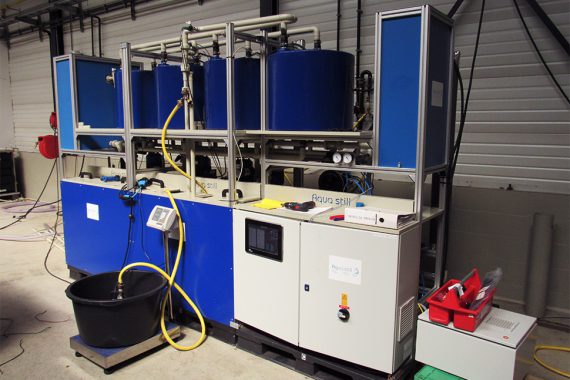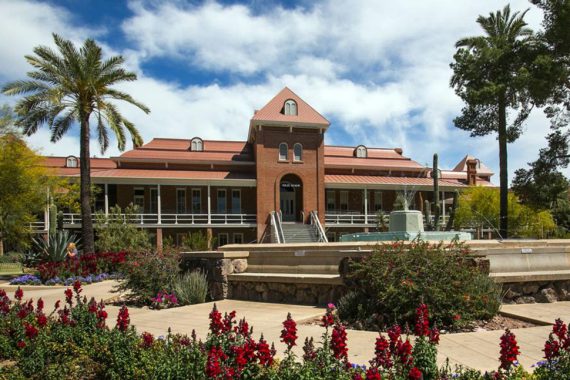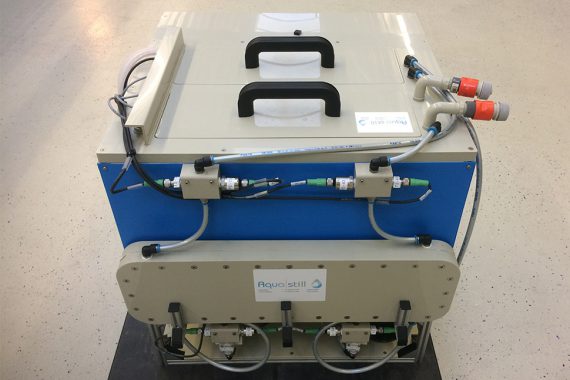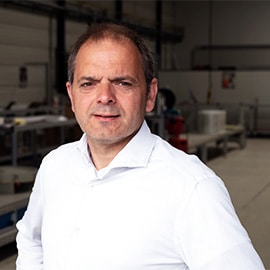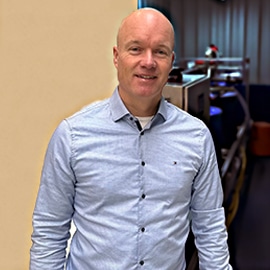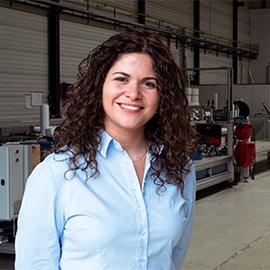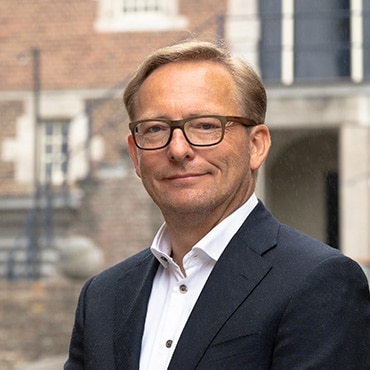Membrane distillation
re-invented.
With our great thrive to find solutions, we present our latest development: a completely new module for an off-grid toilet concept.
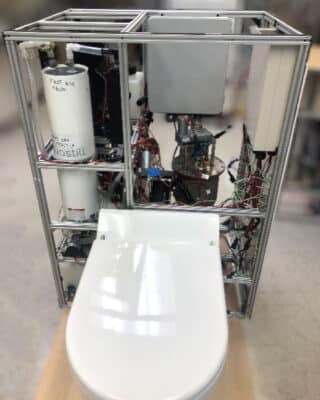
New application with membrane distillation.
Our modular membrane distillation (MD) technology offers a suitable water purification method as part of a special project to shape the future of sanitation. We have developed a compact version of our MD technology for use in a hygienic and sustainable toilet, which works without external water consumption and no need for a sewer connection, and with the help of solar energy.
Until now our innovative technology has been focused on water desalination water at a medium (1000 m3/day – industrial level) scale, at competitive costs and with minimal impact on the environment. Now we have made this technology work at a micro scale (household level), which is now being used to treat toilet wastewater at a domestic level with very small, compact units, resulting in a much wider range of applications.
Co-development.
The new technology was developed by Aquastill in partnership with Cranfield University (UK), as a part of its major R&D project to develop the Cranfield Circular Toilet which works with no sewer connection and almost no water consumption, to improve sanitation issues in low income countries. Cranfield University has long-standing experience in water and sanitation research and this has been combined with the university expertise in applied engineering and product development.
The Aquastill module has been incorporated into the Cranfield Circular Toilet system to process the liquids (urine and water) component of toilet waste, and it is an integral part of the overall system. The co-operation has been ongoing for three years, and has led to collaboration on intellectual property, testing and product upscaling, and also work with manufacturers who are aiming to launch the final product in the next 2-4 years.
It is a remarkable example of how universities and business can work together, good news that we are achieving the first positive results together.
For more information about our joint concept, click here.
Benefits of this toilet system.
The Cranfield Circular Toilet can be used stand-alone, which makes it suitable for locations where water, sewage systems and electricity are scarce. We hope that it will ultimately replace the use of common “pit” latrines to improve sanitation dramatically, and it will be a perfect solution for developing countries in the future. Also there will be a version of the product available for developed economies.
Many of these countries are in remote sunny locations, often without connection to an electrical grid, the electrical consumption of the toilet system means that solar power can be used as an energy source to power the purification process, including the Aquastill membrane distillation unit, and the thermal treatment process used to treat solid waste and gas output.
This is a first example of where Aquastill can be part of a Zero Liquid Discharge and renewable energy-based solution. We are able to contribute to a product that is a crucial solution for the poorest people on our planet: a hygienic visit to the toilet. Together we make safe and affordable sanitation accessible for 2.5 billion people.
Support.
Our joint concept is supported by the Bill & Melinda Gates Foundation as part of its effort to create a world where every person has access to safe sanitation and can achieve their full human and economic potential.
More than 3.5 billion people worldwide lack safe sanitation, which is a core contributor to fecal-oral diseases, like cholera, which cause the deaths of 395,000 children under five years old every year. Ensuring safe sanitation is imperative for every country to create a healthy and sustainable future.
Knowledge
Contact



